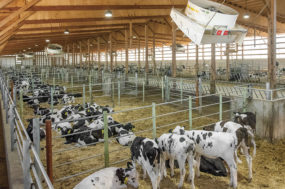Drawing from a pilot study of dairy processors, the Innovation Center for U.S. Dairy recently released voluntary best practices for enhanced dairy traceability. The practices were designed by processors, for processors, to increase global competitiveness, help satisfy future requirements of the Food Safety Modernization Act (FSMA) and, in the rare event of a safety issue, quickly isolate products to protect public health and prevent brand damage.
The Innovation Center, established under the leadership of America’s dairy producers through the dairy checkoff program, considers enhanced traceability guidelines a priority not only for improving global competitiveness, but also for supporting customer and consumer confidence. The new guidelines do not affect producers and on-farm practices.
Five processors, accounting for more than 20 percent of U.S. milk production, have committed to the practices: Darigold, Glanbia Foods, Hilmar Cheese Co., Leprino Foods and Michigan Milk Producers Association. In the coming months, all processors will be asked to make the U.S. Dairy Traceability Commitment stating they will voluntarily adopt and apply the practices.
“Our 80 percent goal by September 2014 is ambitious but attainable,” says Dermot Carey, chairman of the Innovation Center’s Traceability Subcommittee, which developed the best practices. “As an industry, we want to be the global leader for dairy traceability.”
The best practices include three pillars of dairy traceability:
- Modeling physical plants to know where new lots enter and where products transform
- Creating a lot identifying mark that will be recognized and used by customers
- Enhanced record-keeping that will assist in expedient and effective recall capability
The center’s website offers several resources, including an in-depth document, “Guidance for Dairy Product Enhanced Traceability,” which offers voluntary practices and protocols for strengthening the U.S. dairy supply chain. It features a handy one-page, 21-point traceability checklist.
The traceability guidelines were written with Washington in mind. When Congress passed the most sweeping reform of food safety laws in more than 70 years, FSMA, it tasked the FDA to create regulations. The FDA, in turn, has asked food industries for input.
“With Congress and the FDA putting so much attention on food safety in general and traceability in particular," Carey says, "it’s just smart business to get in front of this issue now." PD
—From Innovation for U.S. Dairy news release



